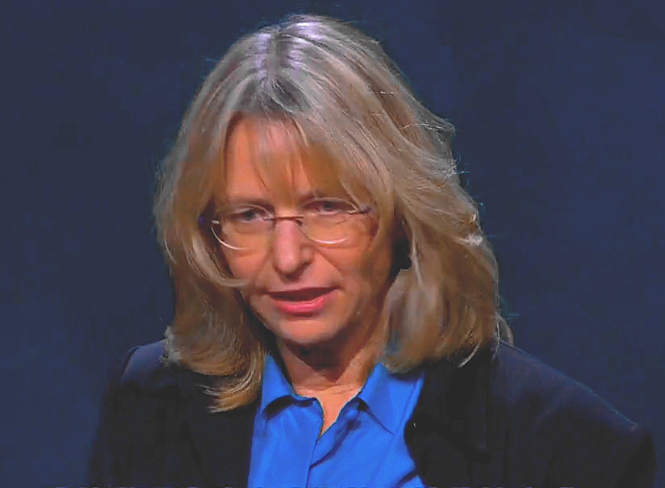And then in later experiments, we found the opposite,
而在随后的实验中,我们发现了相反的情况,
that fir was sending more carbon to birch than birch was sending to fir,
花旗松给纸皮桦送的碳比纸皮桦给它的碳多,
and this was because the fir was still growing while the birch was leafless.
这是因为当纸皮桦树叶掉光了的时候花旗松还在不停的生长。
So it turns out the two species were interdependent, like yin and yang.
这就说明这两种树其实是相互依赖的,就像“阴”和“阳”。
And at that moment, everything came into focus for me.
在那个时候,事情开始变得清晰起来。
I knew I had found something big,
我知道我有了重大发现,
something that would change the way we look at how trees interact in forests,
这个发现可以改变我们对森林中树木互动方式的看法,
from not just competitors but to cooperators.
树木之间不仅有竞争关系,同时也有合作关系。

And I had found solid evidence of this massive belowground communications network, the other world.
并且我当时已经找到了关于在那个世界中树木的巨大地下交流网络的确凿的证据。
Now, I truly hoped and believed that my discovery would change how we practice forestry,
现在,我真诚地希望和相信我的发现能够改变我们的林业实践活动,
from clear-cutting and herbiciding to more holistic and sustainable methods,
能够让我们放弃皆伐和大范围的使用除草剂转而采用一些更全面和更可持续的方法。
methods that were less expensive and more practical.
这些方法更经济,也更实用。
What was I thinking? I'll come back to that.
当时我在想什么呢?我等一下会说到。
So how do we do science in complex systems like forests?
那么,在像森林这样复杂的系统中应该怎么做科学研究呢?
Well, as forest scientists, we have to do our research in the forests,
其实,作为林业学家,我们就是要实实在在地在森林里做研究,
and that's really tough, as I've shown you.
即使,就像我刚才给你们讲的,你所面对的环境会非常恶劣。
And we have to be really good at running from bears.
我们要非常擅长于,逃脱熊的追赶。
But mostly, we have to persevere in spite of all the stuff stacked against us.
但在大多数时间里,我们必须要坚持不懈,即使所有的事情都跟我们作对。
And we have to follow our intuition and our experiences and ask really good questions.
我们必须要遵从自己的直觉和经验,然后提出有价值的问题。
And then we've got to gather our data and then go verify.
之后我们还得收集并且核实数据。



